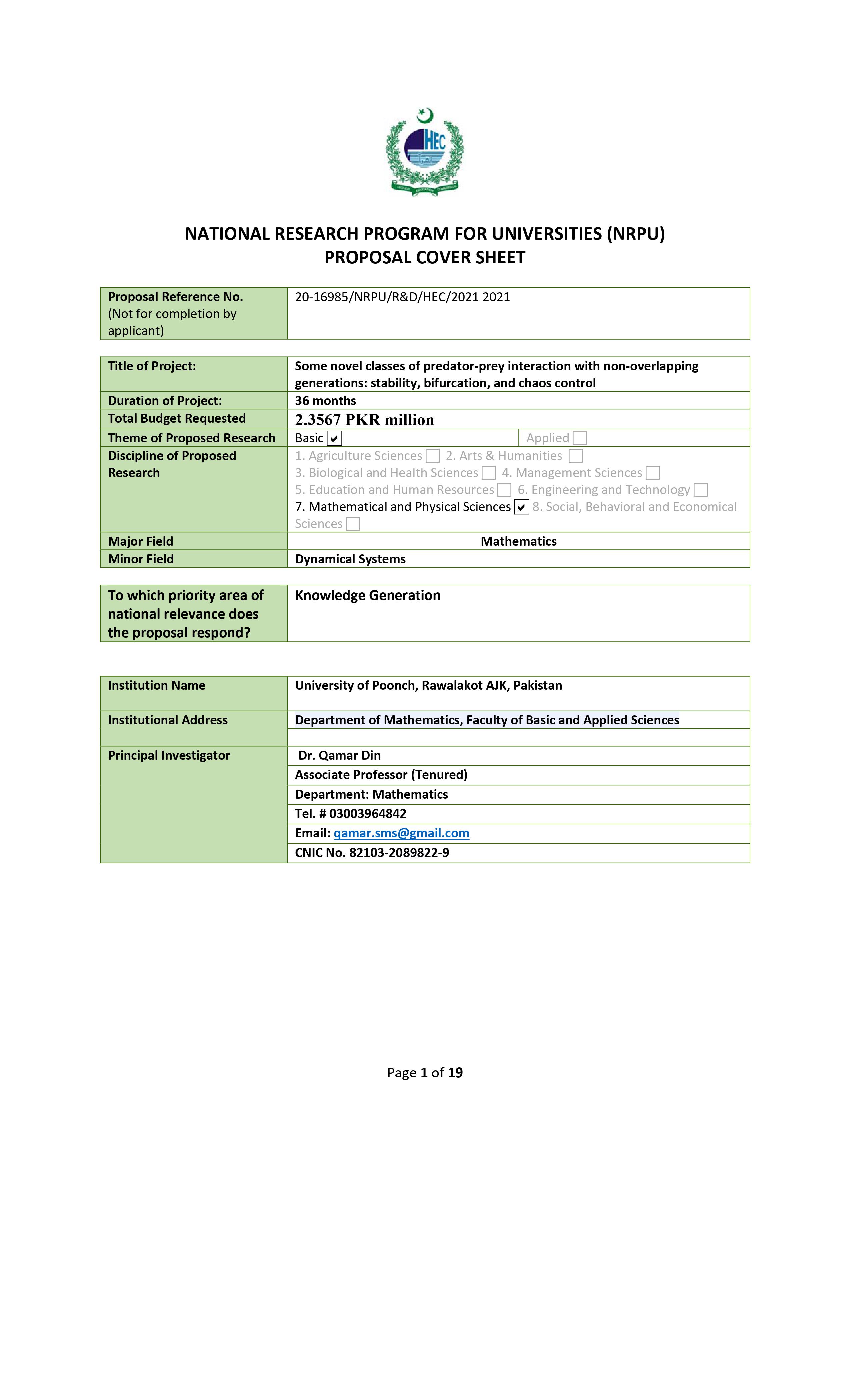Some novel classes of predator-prey interaction with non-overlapping generations: stability, bifurcation, and chaos control
Product Details
A recent study on prey-predator (host-consumer) interaction shows that the effects of consumer (predator) dread can cause a sudden change in the host-consumer dynamics. Fear of consumers alters anti-predator defenses to a certain extent, and as a result it reduces prey (host) production. Low and high levels of fear play a key contribution in altering the dynamics of the host-consumer interaction. Low levels of fear yield bifurcating and fluctuating behaviors in a host-consumer interaction. One can easily observe that high levels of fear can be helpful for the stabilization of the host-consumer system. Keeping in view the non-overlapping generations, some novel discrete classes of host-consumer interaction incorporating fear effects on host population are studied. We discuss the qualitative analysis of the proposed models including the existence of biologically feasible steady-states, their stability analysis, period-doubling bifurcation (PDB) around boundary steady-state, Neimark-Sacker bifurcation (NSB) around interior (positive) steady-state (fixed point), and utilization of chaos control methods is also studied. In the end, theoretical discussions are validated with real observed field data of prey-predator interaction.




